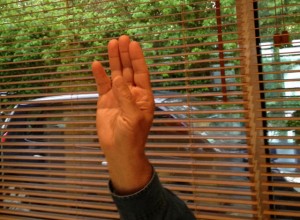Last week, I talked about the use of bonjour in French. This week, I want to comment on another very common expression – s’il vous plaît (or s’il te plaît in the familiar form). It literally means “”if it pleases you but, like bonjour, it is not necessarily used under the same circumstances as please.
To start off with, the so-called magic word is not used as frequently in French as it is in English. A child asking for an ice-cream should say s’il te plaît maman or s’il te plaît papa. However, if he is asked if he wants an ice-cream, the answer is more likely to be oui, je veux bien and not oui, s’il te plaît. This is particularly so in the case of adults who would never say oui, s’il vous plaît but simply oui or oui, je veux bien when offered something to eat or drink. Veux is from the verb vouloir “to want” so je veux bien literally means “I want well” and is not directly translatable.
If you want to ask someone politely to help you do something, you’d say est-ce que tu veux bien m’aider and not aide-moi s’il te plaît which is much more abrupt and corresponds more to “help me, will you”.
The very frequent “yes thanks” used in English is not possible in French. You can say non, merci or just merci WHICH MEANS NO unless the context indicates otherwise, but never oui merci. I can remember when my father was in France once and we went to visit friends who didn’t speak English. He understood he was being asked if he wanted a beer and replied merci. I decided not to say anythng until he expressed surprise at not being given anything to drink!v
You’d never see a sign saying S’il vous plaît, ne mangez pas dans le bus instructing people not to eat in the bus but Veuillez ne pas manger dans le bus, veuillez being the polite command form of the verb vouloir mentioned above, which isn’t translatable either. It very roughly means “would you”. You’ll see veuillez in several contexts such as Veuillez faire l’appoint which means that you should give the exact change.
In Belgium and in the north of France, s’il vous plaît is also used when someone gives you something. For example, a waitressr will say s’il vous plaît when she sets down your plate in a restaurant. It is also used instead of je vous en prie (you’re welcome, literally I pray you) in response to thank you.

And while we’re talking of restaurants, you can use s’il vous plaît to attract the attention of a waiter, raising your hand at the same time with your fingers together (as opposed to apart when you wave).
Do you know of any other differences between the English use of please and French use of s’il vous plaît?





Wonderful and very helpful post Rosemary!
Cheers and thank you.
Hi Carolyn, you’ve welcome!
Great post – now I just need to remember it.
Ah, yes, the remembering is always the bug!
Morning Rosemary…your post got me thinking..one can learn French FOREVER and still not really get it! So, when I have been saying, ever so sweetly to a waiter, ‘ oui, merci’…..I have been saying….YES, no thank you! hahaha , and when I have asked for assistance ‘exusez-moi, mais pouvez-vous m’aider, s’il vous plait?…they have been wanting to answer – yes I CAN help you, but I don’t want to… !! Its a good thing I gave up on French perfection a long time ago 🙂
I’m sure the waiter understood you were being polite. The most important one to remember is the “no thanks”!
Really good explanation. I use veuillez all the time, but only because I’ve observed that is what people do — I didn’t know the real technicalities behind it, only that it was the polite form. I knew about what would happen if you used oui merci very early on, not because I fell into the trap myself, but because an English friend told me a story about missing out on dessert having done exactly what your father did. I do use oui svp a lot though, and must get into the habit of using je veux bien. It is one of those things that is ok from foreigners though and makes you sound extra polite so it doesn’t really hurt.
I forgot to say — in my experience, wait staff in the north are just as likely to say Hop là when they put your plate down, which always made me giggle. It’s like they are producing a rabbit out of a hat.
I didn’t know about Hop là in that context. I’ve always found it amusing too.
No, there’s no harm in sounding extra polite. I perfectly agree.
Vérification faite en ligne sur le site http://www.cnrtl.fr/, “S’il vous plaît” peut s’employer “pour convier l’interlocuteur à s’étonner de la valeur ou de l’importance de ce qui est dit avec, selon le contexte, une intention ironique.” Ex : La jeune femme vint à sa rencontre vêtue – s’il vous plaît – d’un tailleur Chanel. On ne l’attendait certainement pas aussi élégamment vêtue ! Une tournure peut-être un peu ancienne…
Merci Elisabeth. Dans ce cas, on dirait “if you please” en anglais. C’est également un peu vétuste.
Excellent article. I run a French Language training business in the Seattle area, and will forward your post to my [adult] students. I know they will find it very interesting.
Well done. Veronique (French Girl in Seattle)
Thank you very much! I’m delighted to know it is useful.
Thanks a lot for the helpful insights into the French language…… It’s a minefield for my schoolboy French taught some 40 yrs ago by a very bad teacher. More please…….
I’ll try, I’ll try!